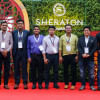Rethinking education and future skills

The world is undergoing a loop of innovation and invention. Artificial intelligence, blockchain, NFTs, the ever-present diffusion of digital cultures, Internet of Things (IoT), and mixed reality-enabled communication are just the tip of the iceberg – knowledge essential for staying relevant. Whether in IT, business, science, economics, or art, knowledge gives one an advantage in the game of society and success.
But where does one gain knowledge in these areas?
From online tutorials and courses to formal higher education ecosystems, learning opportunities to stay relevant are no longer scarce. People fresh out of high school in Bangladesh are no longer limited to higher education in the proverbial sense, as higher education is no longer limited to national borders today.
Want to learn a new skill? Search it up on YouTube. Trying to get certified? Check out platforms like Udemy and Coursera. Besides, many global universities also offer bachelor's and master's programs online. Regardless of these options, nothing beats the experience of a university campus.
Of course, there are pros and cons to each of these approaches. Staying relevant translates to positive outcomes for people – most commonly in a job, business, or expanded opportunities. Otherwise, there wouldn't be a lot of meaning behind it.
Employers always look for the cream of the crop, and that does not necessarily go in favour of graduates from educational institutions that have long held the spot of being societal elites. An employer looks for well-built foundations in their hires – good communication capacity, foundational technical skills, ability to critically think and solve problems, being a doer, and of course having unique traits that they can utilise or find interesting.
For instance, a job advertisement from a renowned company would receive hundreds of thousands of applications. A recent graduate interested in the role may apply with a great resume, cover letter, and portfolio of work. However, if a thousand people get those right, they are still knee-deep in competition. So, apart from a good dossier, an added advantage is needed that can come in many forms.

Perhaps, an entry-level web developer primarily needs programming skills in HTML, CSS, JavaScript, PHP, Laravel, Python, and MySQL. These are skills that nearly every apt web developer has. But, experimentation experience in developing Smart Contracts and knowing the Solidity language accounts for that edge, making them graduate to the top one to five percent of the applicants. These future skills can be easily accessed online for free or at convenient prices.
Advantages can also take much simpler forms, like being a graduate from a perceivably top-tier institution in Bangladesh or studying abroad. Not to disregard university-level education in Bangladesh, but many employers in our country are attracted to foreign degrees.
Foreign degrees can also open doors to the global workplace. Having studied at the University of Sydney for my master's, I know that experience, networks, and affiliation can open many opportunities. Currently, foreign degrees are plentiful online as well. However, there is a stark difference between studying online and having the experience of a full-blown campus and academic environment.
Campus life incubates peer-to-peer learning. It expands on extracurricular experiences as well and activates a student's social circle, enabling them to mix with others from diverse backgrounds and different skill levels. This is amplified further if the campus is a global education institution.
However, it is difficult to get into foreign institutions because of competition and financial bottlenecks. Satellite or branch campuses of global universities are a great countermeasure to bring these international education institutions closer to international students as opposed to them going abroad. NYU Shanghai, Monash Malaysia, and Carnegie Mellon in Qatar are just a few examples of globally stationed branch campuses.
Thankfully, one such institution opened up in Bangladesh as well – Universal College Bangladesh, a place which gives out Monash University's foundation year courses and is accredited by the University Grants Commission, enabling easy access to Monash Malaysia or Monash Australia which is ranked 57th in the world by QS as of 2022.
It is inspiring to see growth in prospective Bangladeshi students' access to these institutions as the international curriculum guarantees the adoption of future skills and the networks to make it big in one's career and life.
Options such as complete digital education, skill-based short courses, onsite education, hybrid deliveries and easy pathways to enrol in top-tier institutions are now available. Bangladeshi students and graduates are making considerable headway both locally and globally. The quality of students in Bangladesh has always been great. We just did not have the connectivity and opportunities to go global at scale.
Now, we do.
The author is the COO and Co-founder of Acme AI Ltd.

 For all latest news, follow The Daily Star's Google News channel.
For all latest news, follow The Daily Star's Google News channel. 








Comments